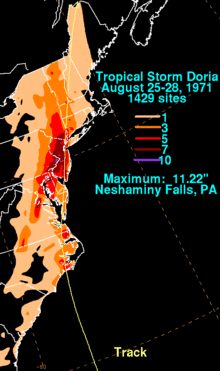When Justice Ginsburg died, her final wish was that the process for choosing her successor would be delayed until after the next inauguration. In doing so, she hoped that it would be the deliberate decision of a body that most truly represented the wishes of the American people, rather than a ploy by one party to grab as much power as they could from the opportunity.
Instead, Mitch McConnell, the Senate Majority Leader, has expressed his intent to push the decision through in record time, even before the election if possible, and certainly before the next inauguration. In doing so, he has expressly ignored the last request of a dying woman who, to the last, had the best interests of the American people at heart.
He has repudiated the same logic that he himself used in thwarting Obama's nomination of Merrick Garland to the Supreme Court. (To refresh your memory, McConnell refused to even submit the nomination to the Senate, on the grounds that it was so close to a Presidential election that it be better if the debate were held until after the next president's inauguration, to better reflect the wishes of the people.)
In expressing the intent to rush a Supreme Court nominee to Senate approval, it seems to me that the Republican Party has clearly forfeited any semblance of decency and propriety in the interests of keeping their party and its values intact as long as possible. It obviously cannot be counted on to do what is right, what is moral, what is decent.
Is there anybody out there that can defend this as the right course of action for any reason other than to advance the aims of the Republican Party? Is there anyone who can honestly think that it's a respectful homage to a distinguished servant of the people?
I have had enough of this. I will say once again that this nation has a cancer. It is a cancer that will eat away at the nation's most vital organs: the right of citizens to a fair election process, their right to equal protection under the law, the rights accorded to all human beings under international agreements, and the proper use of government to safeguard the health of its citizens. That cancer is the Republican Party, which has fought these things tooth and nail for the past half-century.
The cancer must be stopped, or it will kill us. Instead, we must kill it. I call for the death of the Republican Party and all its mechanisms. We must root it out, every cell and every poison that it creates.
You will say that there are many Republican lawmakers and governors who are good people, and who have their constituents' best interests at heart. If that is so, let them resign the party and run as candidates of another party, or as Independents.
You will say that there are many Republican citizens who are good people, and do not hold the values that the current GOP embraces. Very well, then, let them stop subsidizing and supporting that party. Let them vote for Independents, or as members of another party. Let them make it clear to the rest of us that the Republicans can only survive on what corporate America gives them, and corporate America seldom has as much concern for you and me as it has for its own balance sheets.
But, in the meantime, here is something that Republican Senators can do: nothing. They can refuse to approve any nomination for the Supreme Court until after the inauguration. In fact, it may not be necessary for them to take any action at all. They can simply refuse to show up, and thus deny the Senate the quorum it needs to conduct business. (There are ways to get around that, to be sure, but they will need to be tested for their validity, and these will take time.)
But here's the thing: this will be a Litmus test. If a Republican Senator even shows up on the floor for such an appointment hearing, he or she will be advertising their support for McConnell's agenda. They will be openly declaring themselves to be on the side of the forces of repression and against the forces of liberty. Pure and simple. We may not have the evidence to convict them of treason, but we have both the right and the duty to call them out and ask them to defend their actions, and to tell them that their ride on the Congressional gravy train is at an end.
So now it's time to see if the Republican Party can re-grow some of the integrity it displayed in the past, or whether it's asking to be torn down, stone by stone, until there's nothing left. Because if it can't reform, by God, that destruction is what I'll be helping to bring about. I promise to vote for no Republican, ever. I promise to donate to the campaigns of those who would remove Republicans from power. I promise not to be silent when Republicans abuse that power for their own ends. And I encourage each of you to do the same.
Let's kill this cancer. It's war.


